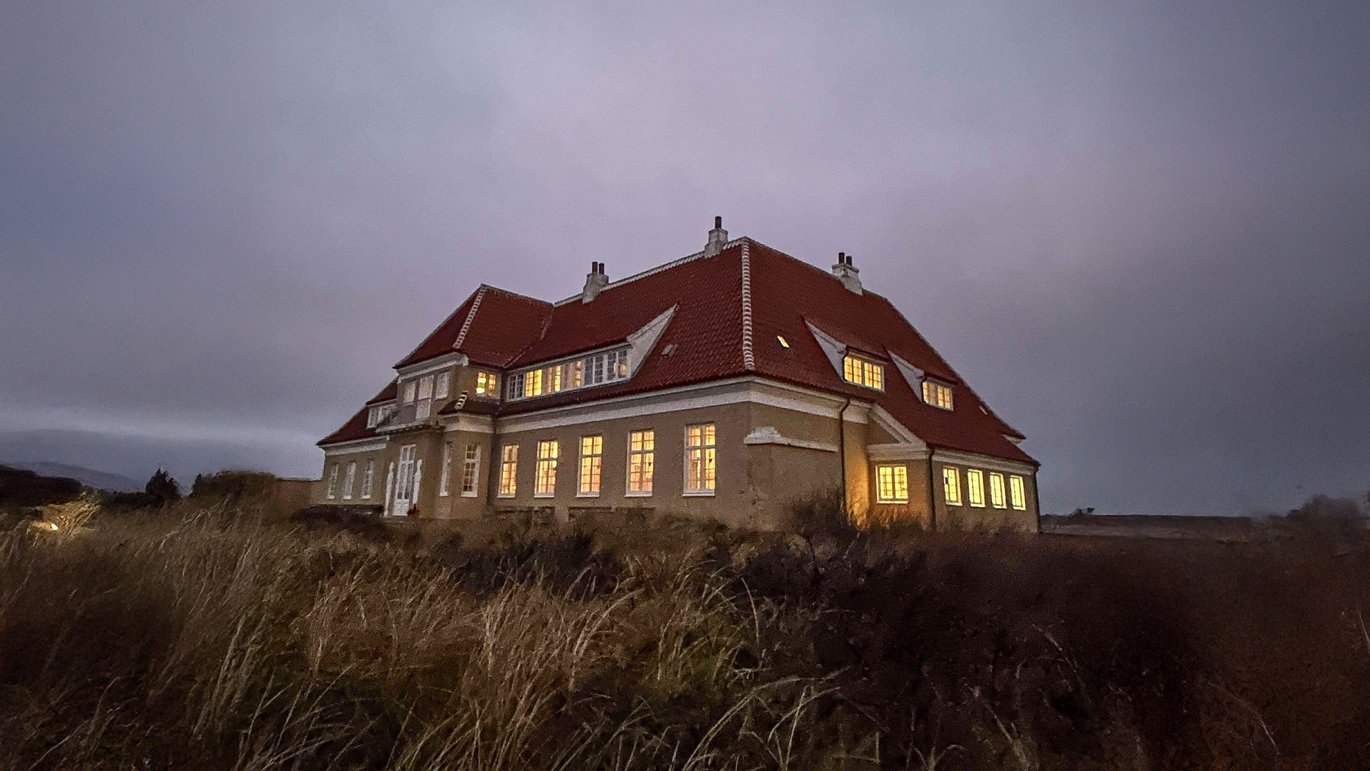From Texas to Skagen: researchers take a step toward green conference culture
In December, a group of cancer researchers from the Department of Clinical Medicine participated in a major international conference in Texas - not by flying across the Atlantic, but by attending virtually from Klitgaarden in Skagen.

In 2024, for the second consecutive year, Professors Signe Borgquist and Birgitte Offersen from the Department of Oncology at Aarhus University Hospital took an alternative approach to the annual San Antonio Breast Cancer Symposium (SABCS). Along with a group of younger breast cancer researchers, they chose to stay in Denmark and follow the conference online.
Instead of making the long journey to San Antonio, Texas, 11 researchers packed their winter coats and tuned in virtually from Klitgaarden in Skagen. The team spent three windy days at Denmark's northern tip, fostering their professional growth and building closer connections.

"The trip to the conference in Texas is both long and expensive, and it falls right before Christmas, which makes it difficult for many of our researchers to attend," explains Signe Borgquist, clinical professor and chair. She adds that political considerations also influenced their decision:
"Texas, as a state, has made very controversial decisions regarding women’s health, which gave us another reason to consider whether we could find a more sustainable and inclusive way to participate in the conference than flying researchers across the Atlantic."
Academic focus and stronger bonds
In Skagen, the researchers followed the most important conference sessions on a big screen together, and according to Signe Borgquist, the atmosphere was highly productive.
"This format allows us to dive deeper into the presented research findings and discuss them in a Danish context with our closest colleagues," says Signe Borgquist.
The virtual approach also made it possible for more researchers to participate, which otherwise would not have been feasible due to the costs associated with a physical trip to the U.S.
"When you’re isolated at the top of Denmark, a unique dynamic emerges. We connected with each other in a different way and got to know each other better, both professionally and socially. However, organizing a successful virtual conference requires careful planning. We prioritized the most important sessions and incorporated breaks and walks to maintain focus throughout the day - it’s essential for maximizing the experience," she adds.
A model for the future?
The green conference model was first tested by the cancer researchers in 2023, and according to the professor, the approach has proven to be a great success and a solid alternative to long flights.
"Virtual conference participation is an obvious solution when we need to balance sustainability, inclusion, and academic output," says Signe Borgquist. She continues:
"Of course, virtual attendance can never fully replace physical presence at conferences, as you lose the opportunity to network and socialize with international colleagues. But with the right framework, I strongly encourage other research groups to try it. In our group, there’s no doubt - we’ll do it again."
Aarhus University's Climate Strategy
Sustainable conference participation is part of Aarhus University's strategy to reduce its overall CO2 emissions by 35% by 2025 and by 57% by 2030, compared to 2018 levels.
According to the university's climate strategy, air travel constitutes a significant part of the institution’s carbon footprint and is a central focus area. Aarhus University is therefore committed to supporting staff in choosing alternatives to carbon-intensive travel, including greater use of trains, carpooling, and virtual meetings and conferences instead of air travel.
You can read more about the climate strategy on Aarhus University's website.
Contact
Clinical Professor and Chair Signe Borgquist
Aarhus University, Department of Clinical Medicine and
Aarhus University Hospital, Department of Oncology
Phone: +45 22 62 45 25
Email: signe.borgquist@oncology.au.dk